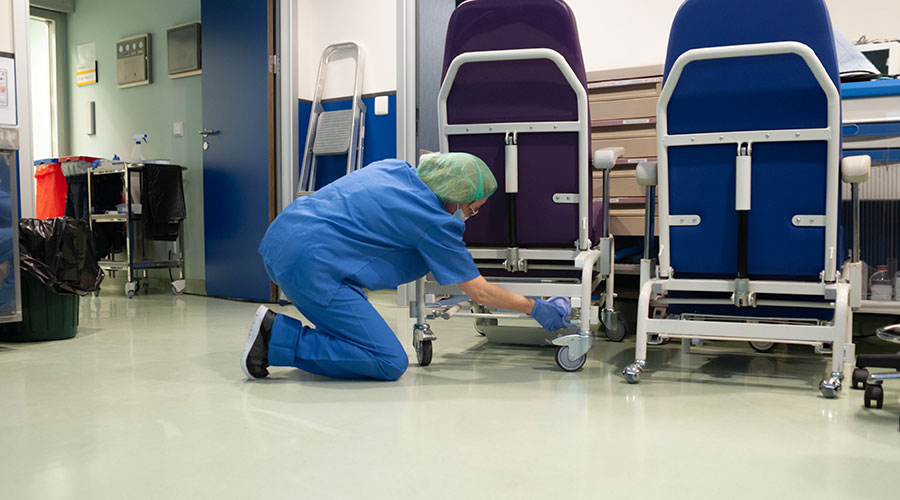The Affordable Care Act has created new standards for healthcare providers, particularly in terms of infection control and patient satisfaction. One aspect of the patient experience in this regard that may not be immediately evident is the role of the medical recliner, used most heavily for dialysis treatment but also for a number of other functions such as bariatric seating, infusion therapy, post surgery recovery, long-term care, and for patient rooms and overnight stays.
Meeting higher standards while lowering costs
The ACA has created new standards that healthcare facilities must meet in reducing readmissions and improving overall patient satisfaction. Government reimbursements will actually depend on provider scores in these areas.
At the same time, the ACA is pushing hospitals and other care facilities to reduce costs. The upshot is that providers are looking more closely than ever at obtaining the best value from their suppliers. This includes chairs that are durable, low maintenance, easy to clean, and offer a variety of options to help with patient satisfaction and comfort. They can also be ordered with a variety of color and fabric options to suit different environments or design needs.
Chairs get attention in battling bacteria
One important way in which recliners are helpful is by being easy to keep clean. Hospitals can be rife with bacteria that can cause debilitating infections, which are among the major reasons patients are readmitted. And one of the places microbes most like to hide is in patient chairs. Especially in a recliner, it’s easy for bacteria to take up residence in the various cracks and seams, not to mention when chairs may be exposed to blood or fluid spills during treatment. Dialysis patients, especially, spend a lot of time in these chairs. Four hours is a typical treatment time.
So recliners with an “open design” that lets fluids easily slip and fall to the floor, along with swing-away arms and removable seats that allow easy cleaning access to all chair parts, turned in seams that keep bacteria from “hiding,” and other easily reachable and washable surfaces — all help facilitate the extent to which such chairs can be quickly and thoroughly disinfected between treatments.
Helping with patient satisfaction
Healthcare facilities are now also graded on patient satisfaction by the ACA requirements, leading to a new emphasis on patient comfort and control. For a four-hour dialysis treatment, comfort must be a major feature of the chair. This includes such features as swing-away arms for easy access and exit, as well as fold-out side tables for drinks and materials, extra cushioning, heat and message elements, easy-to-operate, powered reclining positions, headrests, over-the-lap trays, and a host of other features that allow facilities to customize the chair for their patient’s comfort.
That the patient can control many of these functions themselves also bodes well for improving patient satisfaction scores. In terms of the ACA, my company is now finding it has to play a bit of an educational role with healthcare facility architects and designers, discussing the critical role of such functionality. Anyone involved in healthcare issues today needs to understand that for dialysis and other treatments, a highly functioning recliner goes a long way in making the treatment process a better experience.
Doug Keeslar is the president of Champion Manufacturing.

 Seeking Standards for Microbial Loads in Healthcare Facilities
Seeking Standards for Microbial Loads in Healthcare Facilities UCR Health Unveils Plans for Major Expansion
UCR Health Unveils Plans for Major Expansion High-Performance Windows Support Safety at UW Medicine's New Behavioral Health Center
High-Performance Windows Support Safety at UW Medicine's New Behavioral Health Center Central Maine Healthcare Dealing with IT System Outage
Central Maine Healthcare Dealing with IT System Outage Kaiser Permanente Opens Newly Expanded Everett Medical Center
Kaiser Permanente Opens Newly Expanded Everett Medical Center